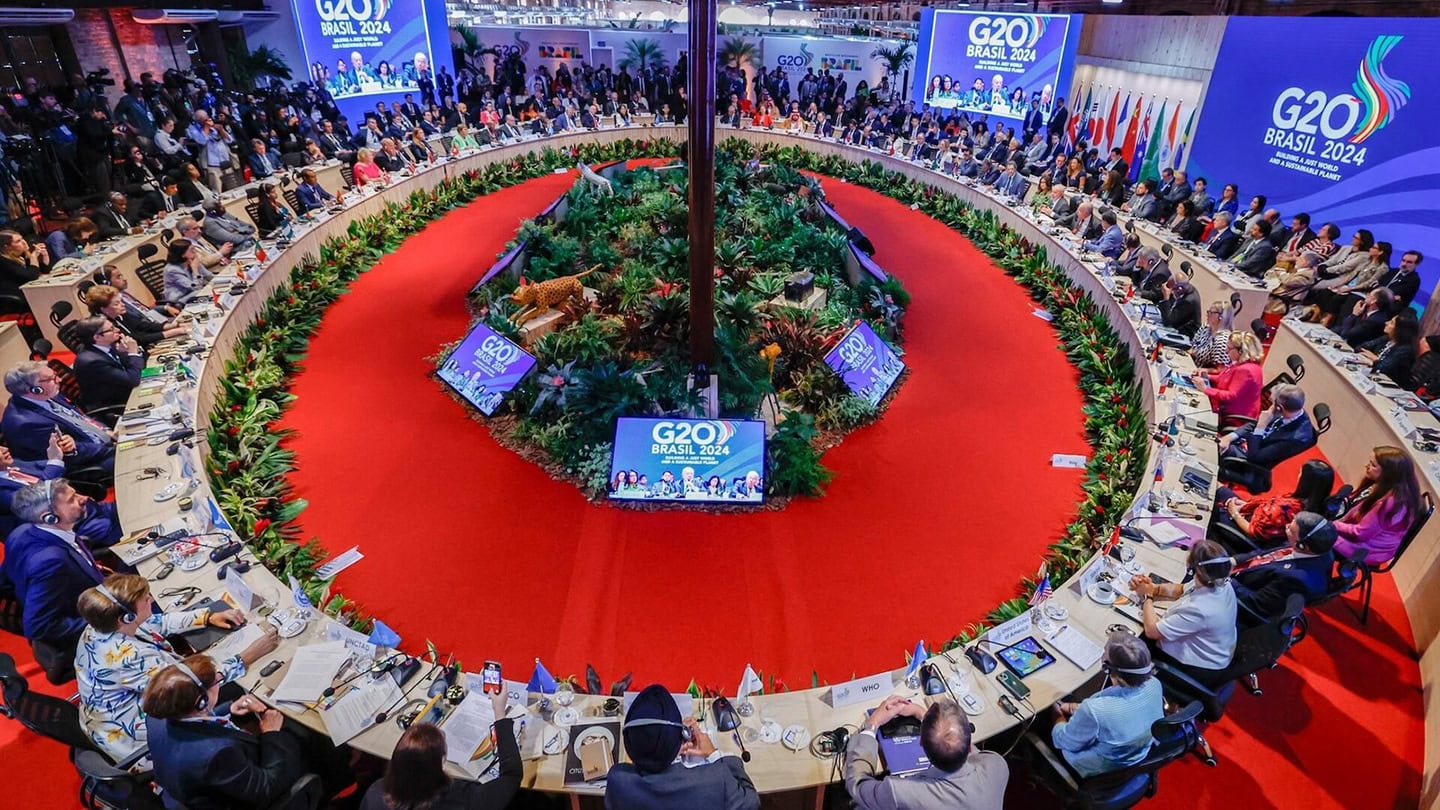As Brazil prepares – for the first time – to host global leaders at this year’s G20 summit, most Brazilian adults are optimistic about their country’s status as an international power. Roughly four-in-ten say Brazil will eventually become one of the world’s most powerful nations, and about a quarter say Brazil is already among the top powers, according to a recent study conducted by the Pew Research Center.
Brazilians’ views of their country’s international standing are more positive than they were in 2017, last time the same study was made. At that time, Brazilians were decidedly more pessimistic about their country’s potential to become a top international power.
Brazilians have also become more optimistic about domestic affairs. The share of Brazilians who trust their national government to do what is right for the country has roughly doubled, from 23% in 2017 to 47% today. The share who are satisfied with democracy in Brazil has likewise increased from 28% to 44% over the same period. During the 2017 survey, the country was embroiled in a long-running corruption probe known as “Operação Lava Jato” or “Operation Car Wash,” which implicated a large number of high-level politicians and business executives, including directors of a major state-owned energy company.
Positive views of certain groups and institutions in Brazil accompany the public’s relative optimism. Majorities say large foreign companies, the police, the military, financial institutions, religious leaders and the media have a good influence on how things are going in Brazil. But Brazilians are divided over whether the court system is having a positive or negative impact on the country.
Views of some institutions have changed significantly since 2017. Brazilians are now more likely to say that financial institutions, the police and the court system have a good influence on the country. Conversely, views of the media have become more negative. The survey was conducted before Brazil’s Supreme Court upheld a ban on the social network X.
At the same time, Brazilians say their nation is divided across social groups – and they see especially strong conflicts between supporters of different political parties. Brazilians also see divisions between different racial and religious groups.
Support for Brazil’s president is also lukewarm
About half of Brazilians (48%) have a favorable view of President Luiz Inácio Lula da Silva. This is greater than the share who have a favorable view of his predecessor, opposition leader Jair Bolsonaro (40%). The survey took place before Brazilian authorities accused Bolsonaro in March of falsifying his COVID-19 vaccination records and in June of embezzling jewelry he received from foreign governments while serving as president.
Major findings in this study
Brazilians tend to say that their country’s influence in the world has stayed the same in recent years; 42% hold this view. Smaller shares say it has been getting stronger (26%) or getting weaker (27%).
About six-in-ten Brazilian adults (59%) say representative democracy is a good way to govern. This is more than the shares who say the same of other political systems we asked about – but a relatively low level of support for representative democracy compared with those measured in other nations.
Brazilians view their peers with distrust. Only 17% say most people, in general, can be trusted, while 81% say they cannot. And 24% think people try to help others most of the time, while 74% say people mostly just look out for themselves. Men are more likely than women to say other people can generally be trusted.
About a third in Brazil say their country has become more democratic (32%) since Lula’s return to the presidency. In comparison, only about one-in-five Brazilians (21%) say their country has become less democratic; 42% say the state of democracy has not changed.
The Pew Research Center survey was conducted with 1,054 Brazilian adults, via face-to-face interviews from Jan. 26 to March 11, 2024.
Source: Pew Research Center



